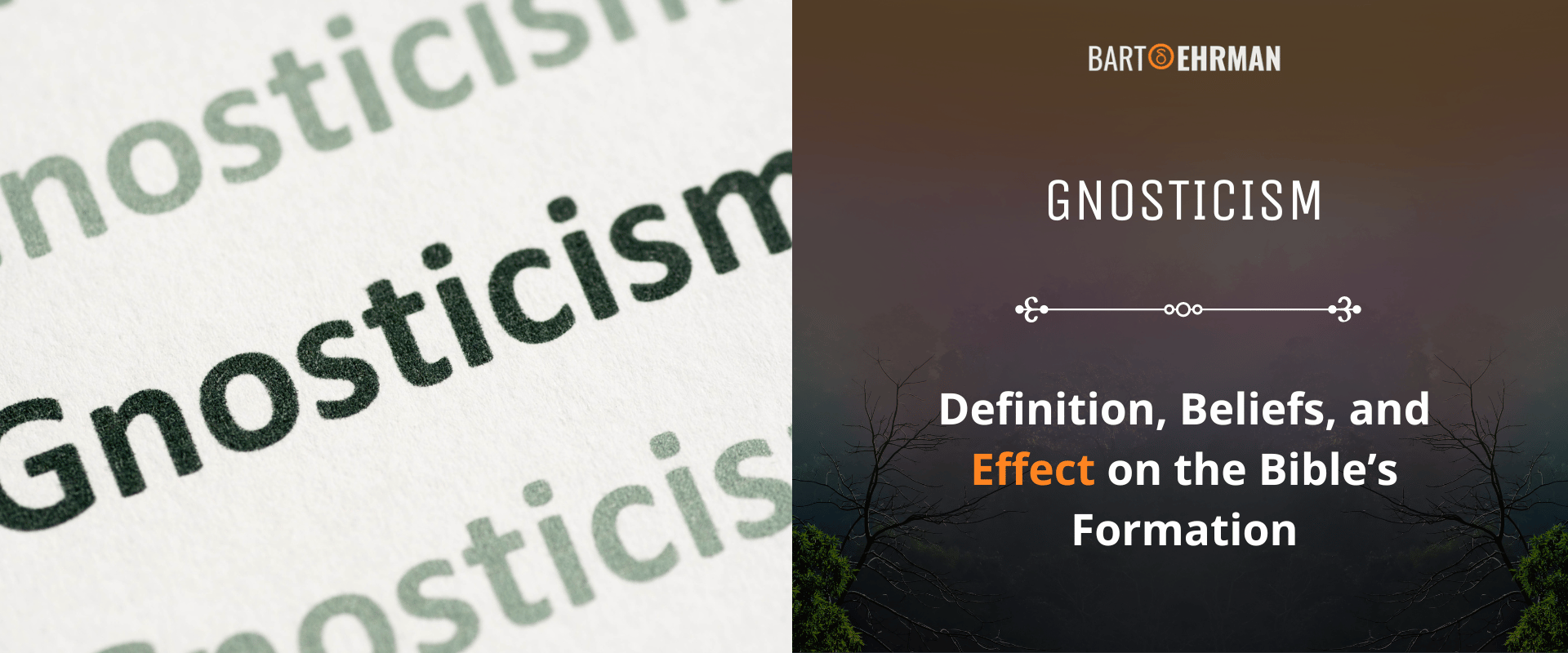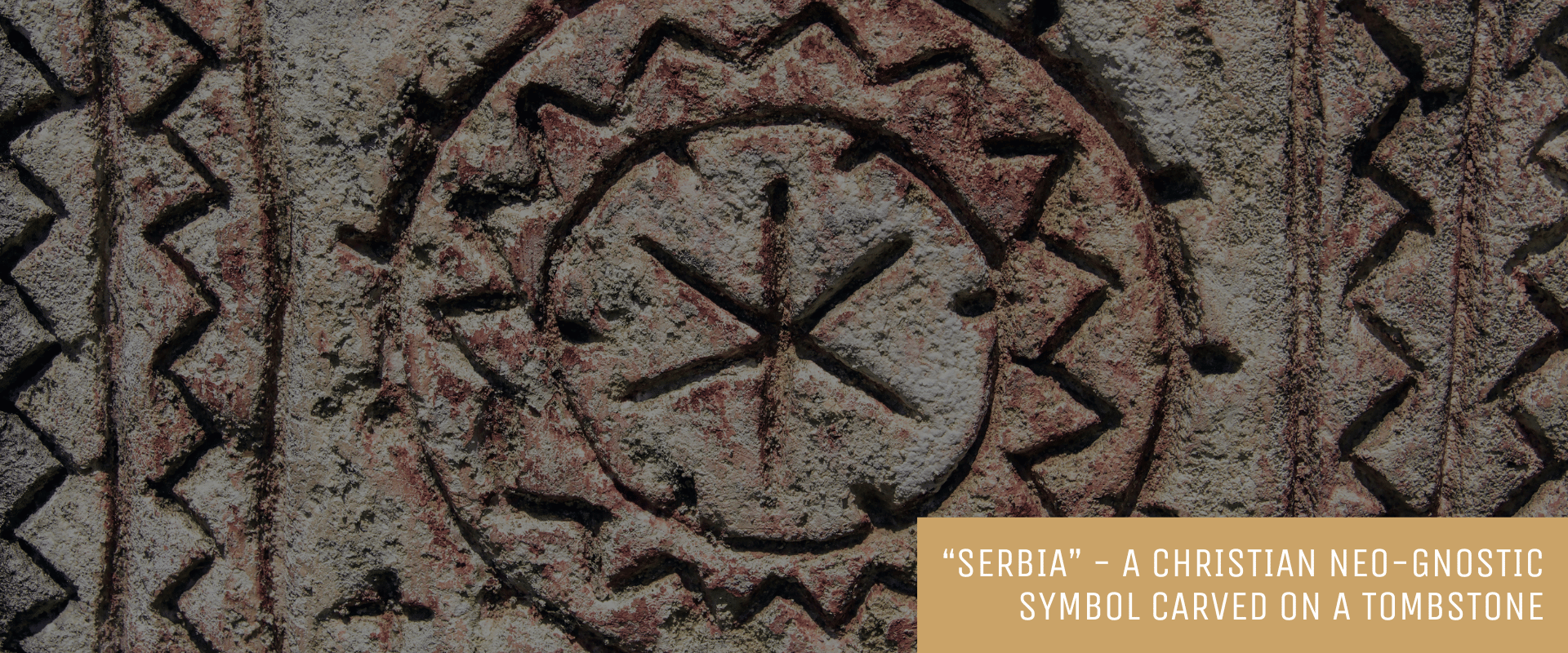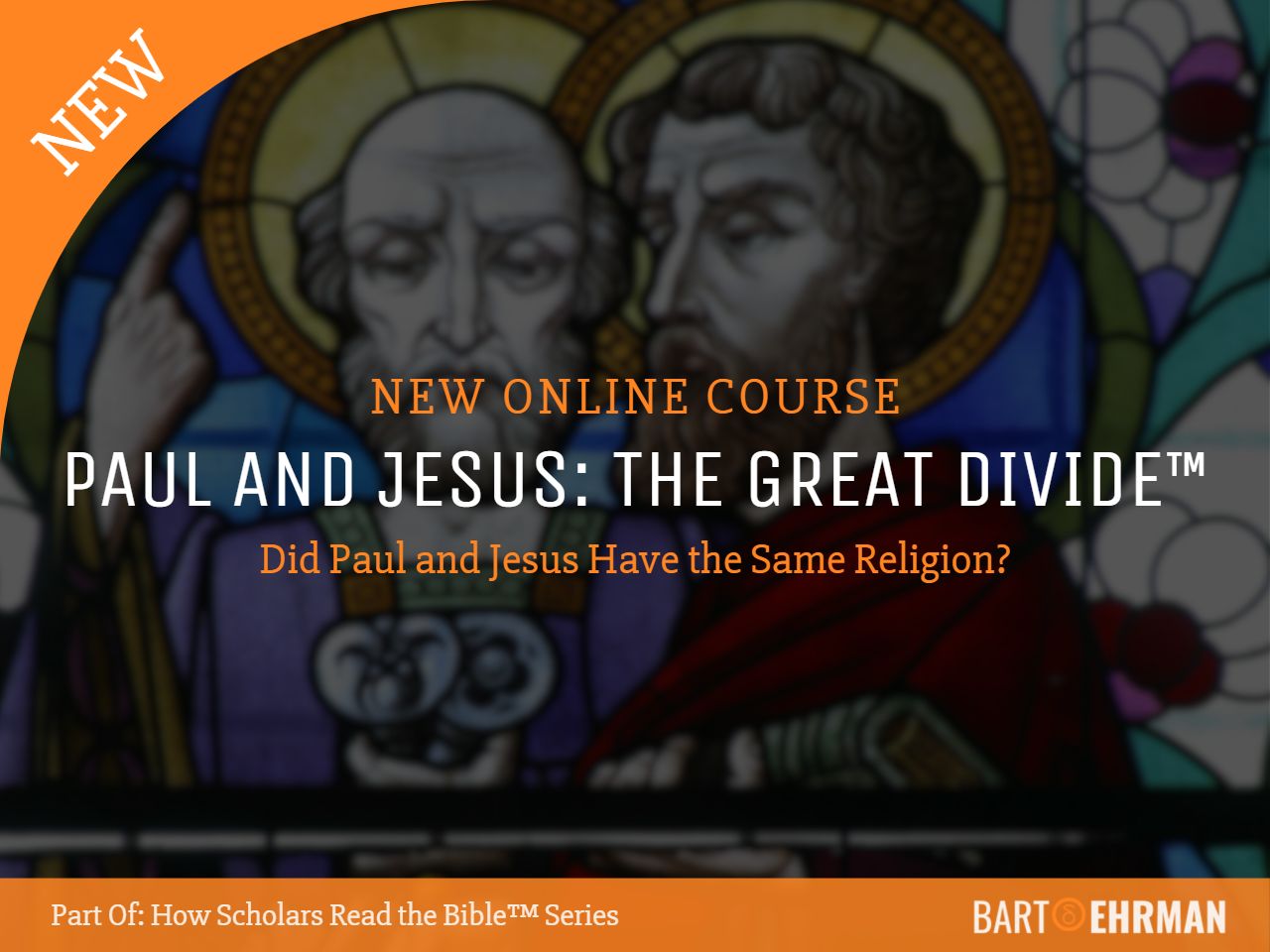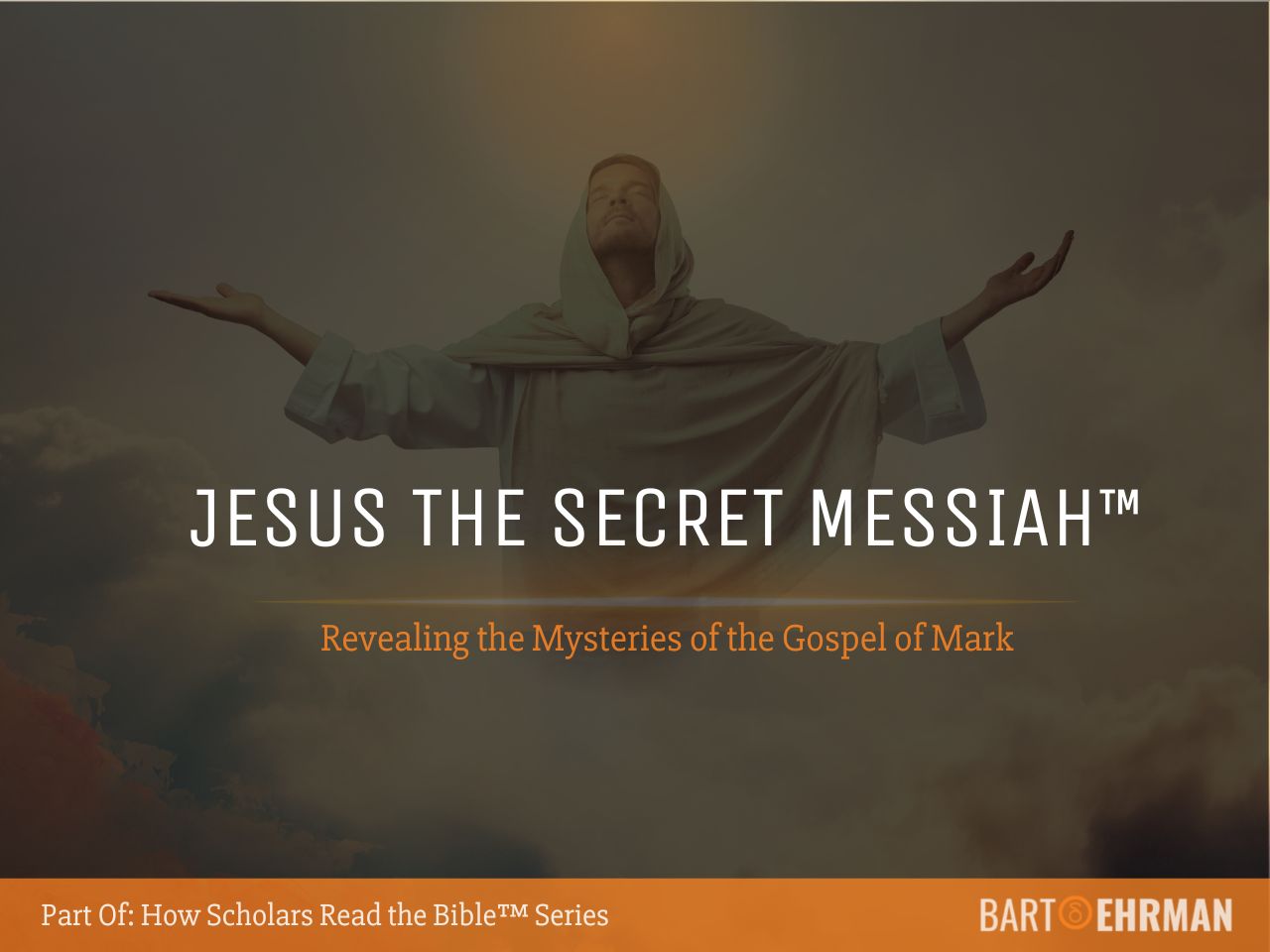Gnosticism: Definition, Beliefs, and Effect on the Bible’s Formation

Written by Joshua Schachterle, Ph.D
Author | Professor | Scholar
Author | Professor | BE Contributor
Verified! See our editorial guidelines
Verified! See our guidelines
Date written: June 19th, 2024
Disclaimer: The views and opinions expressed in this article belong to the author and do not necessarily match my own. - Dr. Bart D. Ehrman
Gnosticism was a popular ancient movement, one of the many different forms of Christianity that developed in its earliest years. It prompted heated responses from well-known Christian authors who saw it as dangerously heretical. While it ultimately died out, its historical significance cannot be denied.
In this article, I’ll define Gnosticism, look at its historical and religious significance, and show how even some of the current canonical books of the Bible were given Gnostic interpretations.

What Is the Meaning of Gnosticism?
The word “Gnostic” comes from the ancient Greek word gnosis meaning “knowledge”. A Gnostic, then, was someone who had special knowledge. The term Gnostic originally meant something like “intellectual”. However, in the ancient Greco-Roman world, the term would later evolve until it related solely to religion and/or philosophy.
In this capacity, gnosis gradually came to mean not only knowledge in general but secret, esoteric, mystical knowledge, the kind only an initiate into special religious groups and practices could obtain. Gnosticism, then, consisted of groups of Christians who claimed that salvation was only attained by receiving special, mystical knowledge. Accordingly, this was what Christ had actually brought to human beings.
I want to point out that in recent years, many scholars have found the term Gnosticism problematic. Specifically, it is too vague to accurately describe all the groups under that category.
However, in this article, I’ll try to give a general description and explain why Gnosticism was considered a heresy.
What Are the Origins of Gnosticism?
The roots of Gnosticism have long been a hotly-debated topic among scholars. Despite the enormous numbers of studies on them, Gnosticism’s origins remain somewhat obscure.
Some early Christian groups and authors called the Gnostics heretics. That is, they claimed to be Christian but had the wrong beliefs and practices. The first Christian author to write about Gnostics in this way was Irenaeus of Lyon (130-202 CE), a bishop in the Roman region of Gaul (modern-day France).
In the Encyclopedia of Religion, Aldo Magris notes that most scholars agree that Gnosticism is related to late 1st-century Jewish and Christian sectarian ideas. In addition, in Gnostic Apostle Thomas: "Twin" of Jesus, Herbert Merillat argues that Gnosticism may even have roots in Buddhism.
Furthermore, Birger Pearson wrote in an article that Gnostics had borrowed ideas from the philosophy of Plato and his later successors the Neo-Platonists. Many scholars in the 19th and 20th centuries argued that the Persian religion, known as Zoroastrianism, was a significant source for Gnosticism but this has been widely questioned in recent years.
Ultimately, while all of these traditions may have contributed to Gnosticism, it is impossible to know for certain.
What Were Gnosticism’s Beliefs?
Until about 80 years ago, our only ancient sources about Gnosticism were proto-orthodox Christian writers (that is, Christians before the 4th century who held what would become orthodox views). These writers couldn’t necessarily be trusted for accuracy since their whole purpose in writing about Gnostics was to demean them and identify them as heretics.
However, in 1945 a group of texts were found near the Egyptian town of Nag Hammadi. Most of these texts have been classified as Gnostic (although, again, that’s a messy term). This was a monumental find for historians! For the first time, we had documents in which Gnosticism was written about by Gnostics rather than their enemies. Therefore, thanks to the Nag Hammadi library, it is possible to make some generalizations about Gnosticism.
Let’s start with Gnostic cosmology, their description of the origins of the universe. Gnostics say that it all began with a supreme divine figure they call the Monad. One Nag Hammadi text, The Apocryphon of John, describes the Monad as “a monarchy with nothing above it.”
From the Monad emanates another lower class of divine beings, the Aeons. The term “emanate” is important here. The Monad, unlike the God of the Bible, does not have a will or act like a person. There is no “Let there be light!” moment of creation. Instead, the Monad’s being simply overflows and thus creates everything below it.
Next, among the Aeons arises a being called the Demiurge which creates the physical world. In some Gnostic traditions, the Demiurge was wholly ignorant of the Monad’s existence while in others, he is opposed to the Monad, a kind of evil god.
Out of the Monad’s emanation, divine elements – sparks of divinity, if you will – fall into the material realm created by the Demiurge, and lie dormant in human beings. Redemption from this fall – a return to the divine – can only come when humans obtain gnosis, mystical, intuitive knowledge.
Some Gnostic groups identified the Demiurge as the God of the Hebrew Bible, a jealous god who forcibly kept souls trapped in physical bodies. These Gnostics were attempting to free their souls from materiality so that they could ultimately return to the Monad.
Another related feature of Gnostic beliefs was dualism. Gnostics generally posited that there were two divine forces, one being the Demiurge and the other the Monad. According to M.J. Edwards’ article “Gnostics and Valentinians in the Church Fathers,” some Gnostic traditions were radically dualist, meaning they believed that the good and evil divine forces were of equal status and power and thus in continual battle. Others held that one deity, usually the evil one, was somehow inferior to the other, a belief known as mitigated dualism.
In The Gnostic Scriptures, Bentley Layton writes that Gnostics also practiced asceticism, strict self-denial, in terms of food and sex. However, in general they did not prescribe universal behaviors in the way proto-orthodox Christians did. Ptolemy, a disciple of the famous Gnostic teacher Valentinus, wrote in his Letter to Flora, that intention or internal motivation mattered more than actual behaviors.
Finally, in Patterns of Women's Leadership in Early Christianity, Nicola Denzy Lewis writes that several of the Gnostic texts from the Nag Hammadi library portray women as leaders and/or heroes. This contradicts what was originally thought about the low status of women in Gnostic communities as written about by proto-orthodox writers.
Why Is Gnosticism a Heresy?
Early Christian heresiologists, writers who identified, described, and condemned heresies in their writings, really hated Gnostics. After reading what Irenaeus of Lyon had to say about them, you could be forgiven for thinking that only Irenaeus’ form of Christianity was dominant in his time.
However, scholars now know that early Christian beliefs and practices were extremely diverse. In fact, the orthodoxy that would develop at the Council of Nicaea was the result of efforts to standardize orthodoxy in relation to heresies. As Elaine Pagels writes in The Gnostic Gospels, “the proto-orthodox church found itself in debates with gnostic Christians which helped them to stabilize their own beliefs.”
So what did writers like Irenaeus find so objectionable about the Gnostics? His major work, Against Heresies, was written with the sole purpose of attacking Christian groups whom he believed had gone astray in their beliefs and practices. In Of God and Man: Theology as Anthropology from Irenaeus to Athanasius, M.C. Steenberg writes that one of Irenaeus’ main emphases was the incorrect interpretations of Scripture by well-known Gnostic teachers like Valentinus.
First, Irenaeus argued that his own authority as a bishop had been passed down through time, beginning with the original apostles. Gnostics, according to him, had distorted this tradition and thus lacked the authority of proto-orthodox Christians.
In addition, he disliked that the secret knowledge – gnosis – which Gnostics required for salvation was only available to an elite few. In his own version of Christianity, correct Christian doctrine was taught by all bishops in different areas for the benefit of all Christians.
Furthermore, Irenaeus pointed out that many Gnostic groups thought the material world was evil and something to be escaped, created as it was by the evil Demiurge. Irenaeus and his brethren, however, saw material creation as good and ultimately fated to be sanctified by God.
Finally, Irenaeus said that the Gnostics believed that the resurrection was purely spiritual, while he and his co-religionists believed it would be a physical phenomenon, that people would be raised in physical bodies. For all these reasons, Irenaeus condemned the Gnostics.

Gnosticism and the Bible
There are verses and even whole books in the current canonical Bible that were given Gnostic interpretations. In looking at these different interpretations, we see the way Christianity might have gone if Gnostics had won the day rather than the proto-orthodox.
To begin with, the prologue to the Gospel of John (“In the beginning was the Word…”) tells of how the divine Logos who came to earth in the form of the person Jesus. The aforementioned Gnostic text the Apocryphon of John says that three descendants came from heaven, the third being Jesus. This is a similar conception of who Jesus is and of his celestial origins. Both books also point to Jesus as a heavenly revealer.
In the edited volume Religion: Secret Religion, Matthew Dillon writes that this likely points to a relationship between the Johannine community and Gnostic ideas. In that same book, April DeConick states that the entire Gospel of John signals a "transitional system from early Christianity to Gnostic beliefs in a God who transcends our world."
DeConick also says the Gospel of John might be evidence of a Gnostic split of the God of Israel into Jesus' Father in Heaven and the Jews' father, "the Father of the Devil" (which is what the original Greek says in John 8:44), which may have later developed into the Gnostic ideas of the Monad and the Demiurge.
Having looked at the Gospel of John as a possible starting place for Gnostic ideas and interpretations, let’s look now at Paul’s letters, which were claimed by both proto-orthodox Christians and Gnostics.
In the edited volume Paul and Gnosis, James D.G. Dunn writes that Tertullian, a 2nd and 3rd-century North African Christian author, called Paul “apostle to the heretics.” Why? Because Paul’s writings were frequently cited by Gnostics as authority for their views. But how could the same writings be both proto-orthodox AND Gnostic?
In I Corinthians 8:1-3, Paul writes “We all possess knowledge (gnosis)…Anyone who claims to know something does not yet have the necessary knowledge, but anyone who loves God is known by him.” All the terms for knowing or knowledge in this passage are derived from the word gnosis. The notion of possessing knowledge in order to be saved was one of the principal Gnostic ideas.
In addition, in Galatians 1:8, Paul says this to his straying Galatian church:
But even if we or an angel from heaven should proclaim to you a gospel contrary to what we proclaimed to you, let that one be accursed!
It’s a strange demand: why would Paul tell them to ignore a different Gospel if it came from an angel, a divine messenger? Elaine Pagels in her book The Gnostic Paul: Gnostic Exegesis of the Pauline Letters, says that the group of Gnostics known as the Valentinians, interpreted the angel who carried a different gospel as the Demiurge. This is why Paul warned them not to accept it.
Although proto-orthodox Christians claimed Paul as their own, even claiming that he was absolutely against Gnosticism, Elaine Pagels asks “If the apostle [Paul] were so unequivocally anti-gnostic, how could the Gnostics claim him as their great pneumatic teacher?”
To complete the picture of the Gnostic Paul, by the way, there are two texts, Prayer of the Apostle Paul, and the Apocalypse of Paul, both of which rely on Paul’s letters, among the other Gnostic texts in the Nag Hammadi library.
Books of the Bible Rejected as Gnostic
While none of the books of the Nag Hammadi library were ultimately canonized, I’ll focus here on two Gnostic gospels that were rejected.
The most famous of these is the Gospel of Thomas. This gospel, unlike our four canonical Gospels, has no real narrative. Instead, it is merely a collection of Jesus’ sayings. Some of the sayings in Thomas are the same or very similar to what we find in some of the Synoptic Gospels, such as “Blessed are the poor, for yours is the Kingdom of Heaven.”
As Bart Ehrman points out, however, other sayings in Thomas are completely unlike the canonical gospels. For example, “On the day when you were one, you became two. But when you have become two, what will you do?” Then there’s this one: “Jesus said, ‘When you undress without being ashamed, and you take your clothes and put them under your feet as little children and tramp on them, then you shall see the Son of the Living One, and you shall not fear.”
Sayings like this seem esoteric and difficult to interpret, making them seem Gnostic. This is ultimately the reason Thomas was rejected.
Another gospel from the Nag Hammadi library which was ultimately rejected was the Gospel of Mary. While it’s never stated explicitly in the gospel, most scholars believe that the title is a reference to Mary Magdalene.
Mary is the hero of this gospel. She is said to be not only the one closest to Jesus but also the only one to whom Jesus taught his secret knowledge (gnosis). The other disciples beg Mary to teach them this secret knowledge and Mary obliges. She says, for example, that Jesus taught her that the self consists of soul, spirit or mind, and a third mind between the two.
Teachings like this, which were quite clearly Gnostic, were rejected by the proto-orthodox. It’s also likely that making a woman seem like the most important disciple was another strike against this gospel for the all-male authors who wrote about it.
Conclusion
Gnosticism consisted of groups of early Christians who had very different interpretations of the Bible and Christianity from what would eventually become orthodoxy. They believed that the key to salvation, to their souls being freed from the prison of materiality, was secret knowledge which Jesus came to reveal.
In addition, they believed the universe had emanated from a deity called the Monad and that the world was in a battle between the Demiurge and the Monad. They also interpreted even canonical books of the Bible such as the Gospel of John and the letters of Paul as secret messages imparting knowledge – gnosis – for their salvation.
It’s hard to imagine now, since the proto-orthodox ultimately won, but Gnosticism in some form, as popular as it was, could easily have become the dominant form of Christianity.


